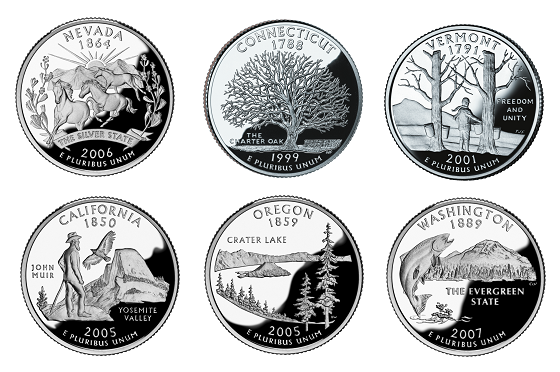This story was updated on Oct. 17, 2014.
In his 2014 State of the Union address, President Obama called for Congress to raise the federal minimum wage to $10.10 an hour in order to reflect the costs of living among low-income workers. But with the current level of $7.25 an hour, the proposed increase would amount to an almost 40% jump in the costs that minimum-wage employers have to pay, raising concerns about the potential effects on businesses and employment among lower-paid workers.
Although proponents argue that boosting the minimum wage stimulates overall economic growth by putting more money in the hands of workers, opponents respond that minimum-wage increases result in reduced hours for workers because of the cost pressures they put on employers. As a result, despite an executive order from the president mandating the $10.10-per-hour wage for workers on federal contracts, no broader-based legislation has emerged.

President Obama shaking hands with House Speaker John Boehner. Source: White House.
One interesting fact in the minimum-wage debate is that many states already pay more than the federal minimum wage. Let's look at the six states that pay the highest minimum wage, according to figures as of the beginning of 2013 from the Department of Labor and more recent updates from various legislative sources.

Images courtesy U.S. Mint.
6. Nevada
Strictly speaking, Nevada shares honors with New Jersey and Illinois, as all three pay a base minimum wage of $8.25 an hour. But while New Jersey and Illinois have lower minimums for tipped employees, Nevada recognizes the predominance of tip-receiving workers and doesn't allow employers to claim any credit for tips against the minimum wage. That's a big cost for Las Vegas Sands (LVS 0.17%), Wynn Resorts (WYNN 0.38%), and other companies with casinos in the state that might otherwise be able to pay many of their tip-earning workers less. Moreover, the minimum wage in Nevada comes with another interesting twist: Companies that offer health insurance benefits to their employees are allowed to pay $1 less in hourly wages. Although a referendum in 2006 required the state to index its base wage to inflation, the wage has stayed the same since 2010.
5. Connecticut
Connecticut's minimum wage just went up to $8.70 an hour in January, climbing from $8.25 an hour. The wage is set to go up again next year, rising to $9.15. It will then proceed upward to $10.10 an hour by 2017. Connecticut treats its tipped employees slightly better than Illinois, giving them a minimum of $5.69.
4. Vermont
In Vermont, minimum-wage workers receive $8.73 an hour, with amounts rising for inflation each year. Tipped employees, however, take a big haircut, with minimums as low as $4.23 applying to occupations where tips are paid. Vermont's unemployment rate hit a low of 3.3% earlier this year, the lowest in nearly a decade, which wage-increase proponents argue is evidence against the idea that high minimum wages automatically mean higher unemployment.
3. California
California climbed up to the No. 3 spot recently with legislation that implemented its $9 an hour wage effective July 1, 2014. The minimum wage is set to climb even further in the near future, with an increase to $10 an hour taking effect at the beginning of 2016. Yet numerous cities, including San Francisco and San Jose, have already implemented even higher minimum wages within their jurisdictions, and given the huge population of the state, California's efforts have gained national attention among labor advocates and critics of the minimum wage alike.
2. Oregon
In Oregon, the minimum wage is $9.10 an hour, with wages having increased along with the rate of inflation for a decade. Oregon's high minimum wage was specifically cited in testimony before Congress last year, as a National Restaurant Association representative noted that the average number of workers per restaurant in the state has decreased steadily since the minimum wage started rising at a faster rate than the federal minimum wage.
1. Washington
Finally, Washington currently tops the nation with a $9.32-per-hour minimum wage. The wage is indexed to the federal Consumer Price Index. Employers can pay workers who are 14 or 15 years old just 85% of the prevailing minimum wage. Even with the top figure in the country, however, a report from the Alliance for a Just Society found that a single adult would need to earn $16.13 an hour in the state to meet basic household needs.
What the minimum wage means for investors
The minimum-wage debate often leads investors to focus on McDonald's (MCD +0.88%) and its fast-food peers, Wal-Mart (WMT +2.03%) and similar retailers, and other businesses where relatively low wages are an integral part of the viability of their business models. Yet many workers at those businesses earn more than the minimum wage, making increases largely moot. Moreover, the fact that McDonald's, Wal-Mart, and similar businesses maintain profitable operations in Washington, Oregon, and other higher-minimum-wage states suggests that companies can make adjustments to remain successful -- albeit perhaps at some cost to investor profits.
With Congress facing elections, the idea of a higher minimum wage is likely to be on hold until next year at the earliest. Meanwhile, these states will provide some evidence of the impact of higher wages on state economies.









